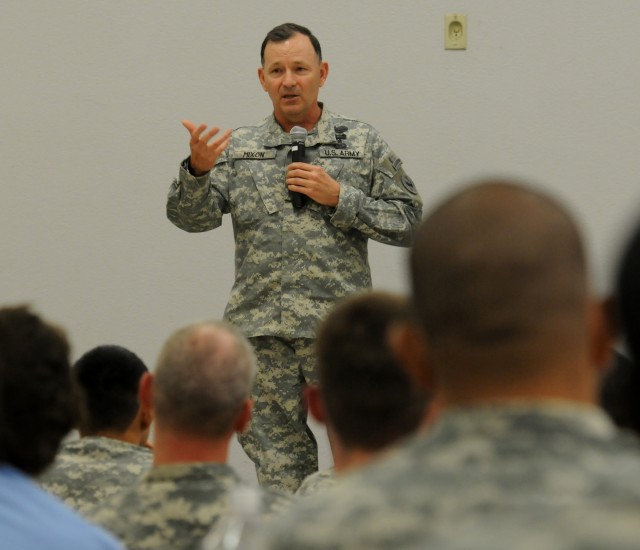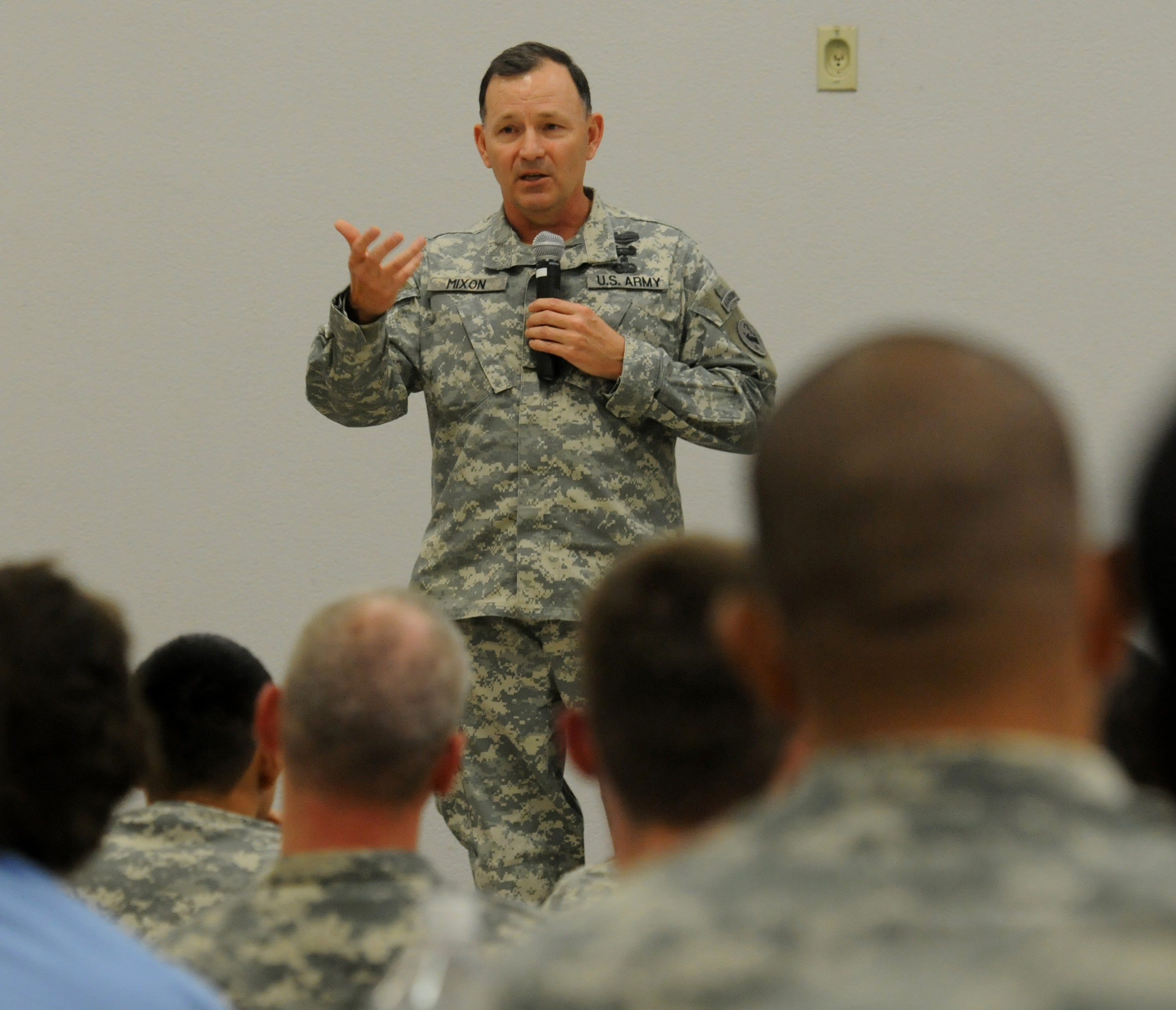
FORT SHAFTER, Hawaii - Building resilience in Soldiers is the task for more than 120 students scheduled to graduate Feb. 23 from the 10-day Master Resilience Training course held at Fort Shafter.
The Army definition of resilience is the ability to grow and thrive in the face of challenges and bounce back from adversity. The graduates of this course will be instilling these attributes into their units.
The MRT course is one pillar of the Comprehensive Soldier Fitness program with the mission to increase resilience and enhance the performance of the force by developing five dimensions of strength: physical, emotional, social, spiritual and family.
CSF's vision is an Army of balanced, healthy, self-confident Soldiers, Family members, and civilians able to not only bounce back from adversity, but also to grow and thrive in the face of persistent stressors and challenges," said Capt. Zachary J. Heinrich, the MRT mobile training team officer in charge.
"MRT breaks away from the traditional means of instruction by teaching resilience, thinking skills and coping strategies through emphasizing how to think, not just what to think. Scientists call this metacognition, or thinking about thinking. This allows for adaptive, flexible, creative, and effective leaders, team members, employees and Family members," said Heinrich.
CSF's approach to the challenges that Soldiers face is not reactive but preventative and the MRTs won't replace any programs that the Army has in place to take care for the force, but will be focusing on the six core competencies of MRT: self-awareness, self-regulation, optimism, mental agility, strength of character and connections, said Heinrich.
Leaders in this course have proven themselves fully mission capable said Col. Tom Vail, deputy director of CSF.
"The Officers and NCOs of this course have already shown great potential to develop resilience programs and provide coping strategies to further strengthen the force," said Vail.
Lt. Gen. Benjamin R. Mixon, commander of U.S. Army Pacific, joined the MRT group on Feb. 15 to emphasize what MRT means to the Army and it's future.
"MRT is about maintaining and enhancing the combat readiness of the force," said Mixon.

Social Sharing